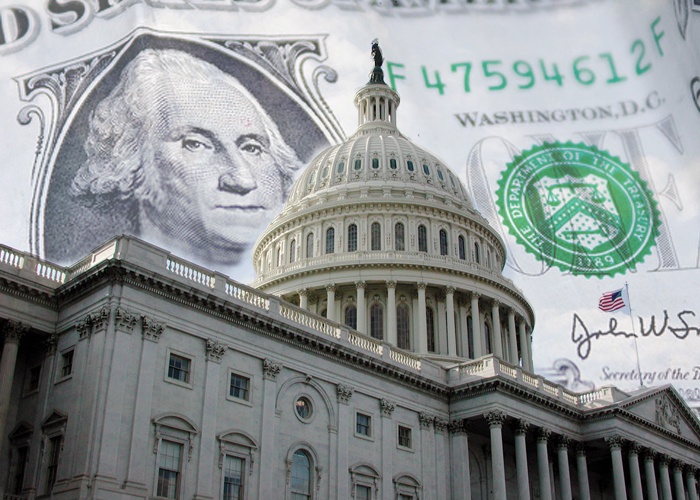FACE OF N.C. DONORS: Despite growing diversity, state politics still dominated by white contributors

North Carolina's electorate is becoming increasingly diverse, yet the state's biggest political donors remain overwhelmingly white. (Image from Every Voice.)
In the political battleground of North Carolina, the racial demographics of the state's voters are rapidly changing, with African-American, Asian and Latino communities giving rise to a more diverse electorate.
But the big donors that bankroll the state's elections don't reflect this growing diversity, according to a new report by the Institute for Southern Studies.
Drawing on campaign finance reports, the Institute identified the 574 biggest North Carolina donors in the state's 2014 U.S. Senate race, the five most expensive U.S. House races in the state, and the 2016 presidential contest so far. Researchers then examined the racial demographics of the donors, drawing on state voter files and other sources. The findings offer a snapshot of North Carolina's "donor class":
-
95 percent of the largest North Carolina donors to key federal races in the 2014-2016 election cycles were white, while non-Hispanic whites make up 65 percent of the state population.
-
These white donors accounted for 97 percent of the $4.4 million given by North Carolina's biggest political contributors.
-
Out of the 574 biggest North Carolina donors in these 2014-2016 elections, only 29 were non-white. These few donors of color contributed roughly $145,000, representing just 3 percent of all donations from big donors. Only three Latino/Hispanic individuals and four African Americans made it into the list of top-tier donors, accounting for 0.7 percent and 1.1 percent of money given, respectively.
-
Going by geography, the top 10 ZIP codes with the largest political contributions had an average white population 8 percent higher than the North Carolina average and an average median income almost 50 percent higher than the state overall.
The map below, created by Institute Program Associate Allie Yee, locates all donating ZIP codes included in the study, with circles scaled to the size of the total donations from each ZIP code.
-
Of the 574 big North Carolina donors identified in the analysis, the top 10 were all white men. Two white Republican businessmen who frequently give large sums to national Republican groups sit atop the list, having donated far more money than all other donors.
Among the report's other findings:
-
North Carolina's top donors are disproportionately male. Two-thirds of the leading donors were men, who contributed 79 percent of the big donations, while slightly more than half of North Carolina's population and registered voters are women.
-
Of the large donors, registered Republicans accounted for 60 percent of money contributed in the 2014 and 2016 election cycles. Contributions from GOP-affiliated donors were especially disproportionate in giving to super PACs and other outside groups.
The findings of this report are consistent with other research that has highlighted the narrow demographic makeup of the donor class. Democracy North Carolina's 2003 study, "The Color of Money in North Carolina," Demos' "Stacked Deck" report, and Every Voice's research all show that the largest political donors are overwhelmingly white.
This report and other research underscore the need for meaningful reforms that curb the influence of special-interest money in elections and that not only promote “good government” but also have the potential to promote equity and a more level playing field in the democratic process.
To read the full report, click here.
The report's release coincides with an event hosted at the Hayti Center in Durham on Thursday, Oct. 15, "Money in Politics as a Civil Rights Issue."
Institute intern Aidan Coleman contributed research for this report.
* These numbers are U.S. Census Bureau's estimates based on the 2009-2013 American Community Survey, which provides complete non-Hispanic racial demographics.
Tags
Alex Kotch
Alex is an investigative journalist based in Brooklyn, New York, and a reporter for the money-in-politics website Sludge. He was on staff at the Institute for Southern Studies from 2014 to 2016. Additional stories of Alex's have appeared in the International Business Times, The Nation and Vice.com.

